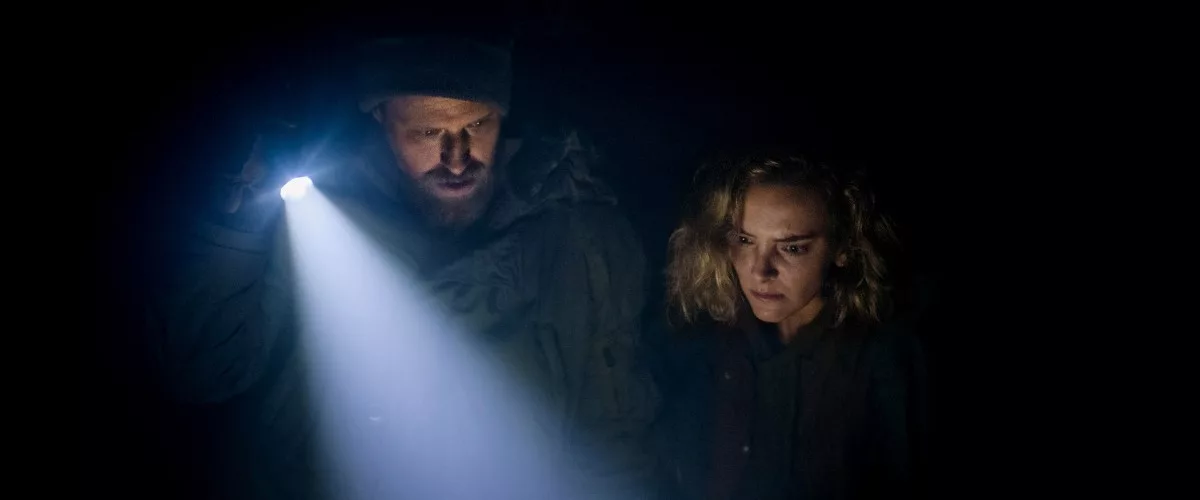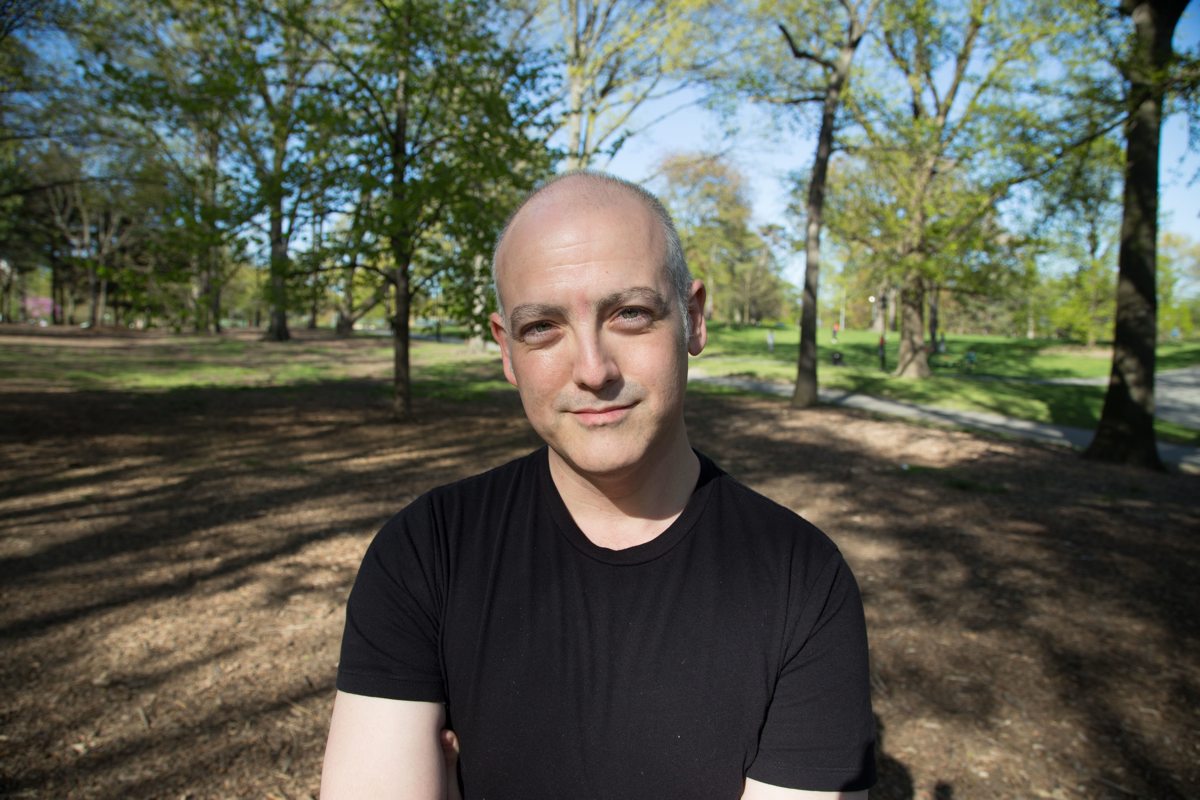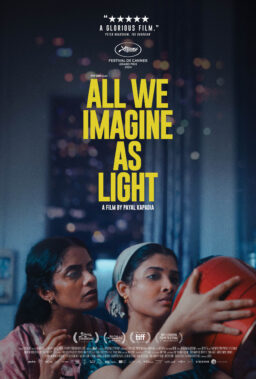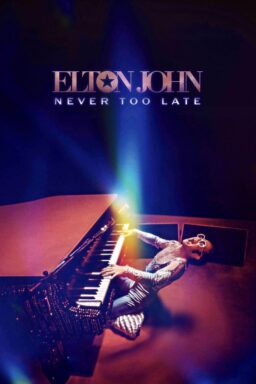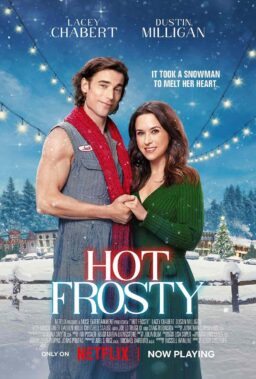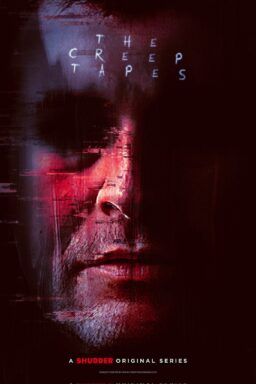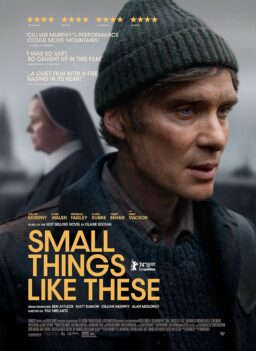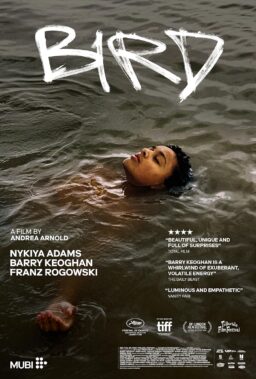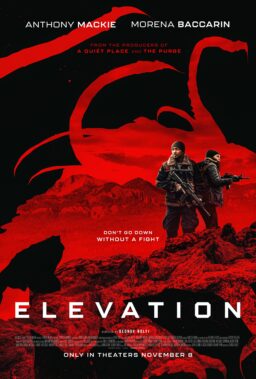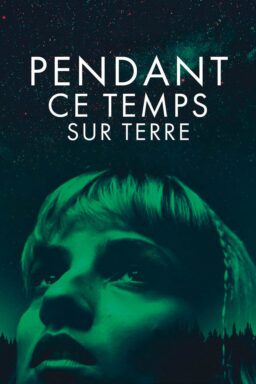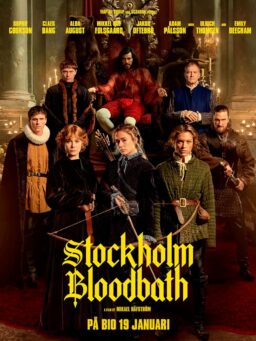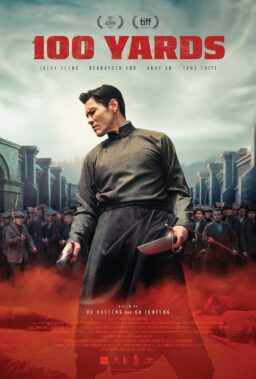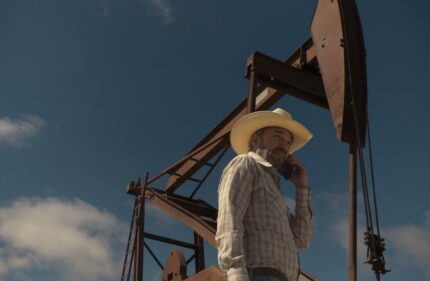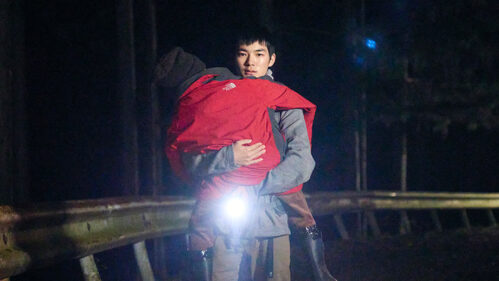"Things Will Be Different" is about two criminals, a brother and a sister, who commit crimes, use time travel to escape punishment, and get trapped in a farmhouse where a crime was committed and start to feel as if they're inmates in a temporal purgatory. Written and directed by first-time feature filmmaker Michael Felker (who co-edited with Rebeca Marques, in a prismatic, nonlinear style) it's an action thriller, a puzzle movie, a relationship drama, and a sound-and-light show, all at once. It creates a world with its own rules and tells a story in its own visual language. It seems it will come to a very obvious conclusion, but then it pivots and introduces elements that create a new frame for the movie. Fifteen minutes later, it does this again, and then again.
Not every element works—the movie is better directed, edited, and acted than written, and it might press the conceptual reset button one too many times, though of course your mileage will vary. But its mastery of tone and pacing is remarkable, and the entire thing has an understated confidence that overcomes any specific complaints one might have.
It also embodies Pedro Almodovar's principle that movies shouldn't just move; they should dance. There are three "passage of time" montages that rank with the best I've seen, and throughout, the cutting generates tension not just with speed and noise but with stasis and silence. There isn't much music in "Things Will Be Different." Maybe ninety percent of it unfolds with natural sound, i.e., whatever sounds naturally occur where the characters happen to be, whether in a musty basement or spooky woods. Movies that do this make you hyper-aware of the squeak of a footstep on floorboards or the distant sound of something (or someone?) moving through the cornfield that borders the farmhouse, which is the principal location for the story. This main set is explored so obsessively, with strategic repetitions, that it starts to seem like a cursed isle of dirt in the American flatlands—a space that can seem either figurative or actual, depending on what's happening in the story. (It's not hard to image this story being redone as a stage play.)
Oh, right: the story. It's probably better if you don't know everything because it's fun to see where it goes, but also because, in the end, I believe the movie cares less about logic and order than feeling and rhythm. I can tell you that the brother Joseph (Adam David Thompson) and the sister Sidney (Riley Dandy) arrive at the farmhouse with rifles, drive off three men who'd been loitering out front, and go into the place to do something that's against the law, and also against the laws of time and space unless you're Christopher Nolan or Alain Resnais ("Last Year at Marienbad"). The premise that I laid out earlier—about how this is a crime thriller where the characters use time travel as a sort of cheat code—really only applies to the first ten or fifteen minutes. The story turns out to be bigger than that.
We begin to receive fragmented bits of the real story of Sidney and Joseph. They aren't biological brother-and-sister. The story we're told makes Sidney sound like a ward who became like a sibling. But they have the intuitive, bantering energy of siblings, and when they move, they're like cats trained to kill by the same mother. They both carry rifles with telescopic sights and are handy with them. Their relationship is the center of everything, giving the movie an emotional pull that gets it through the rougher patches.
Thompson and Dandy are outstanding physical actors, not just in scenes of hand-to-hand combat and gunplay but in quiet moments where they eat a meal or talk about their pasts. And they have such convincing chemistry that if the press notes told me they were actual siblings, I wouldn't question it. They step on each other's words and anticipate the other's reasoning, and sometimes, during arguments, one of them will get so emotional that they'll cry, but just a little. You can tell that these people love each other with a primal purity, which is exactly what you want from lead actors in a movie with a vigorous musicality, so much so that it feels conducted rather than directed.
I often bang the drum on here about how there's more to cinema than story, or "content." "Things Will Be Different" is an excellent example. It's about what happens to the characters and what it means to them and how all the pieces of the fragmented story come together in your mind at the end. But it's also about these characters' feelings when confronted with the reality of the unthinkable and uncanny facts of their situation. The movie feels with them deeply. But it also maintains a cool scientific distance, as if it's a record of an experiment. When you watch it, you can sense the excitement the artists must have felt while working on it, not knowing exactly how it would turn out but sensing the specialness of it, and knowing it had soul.
